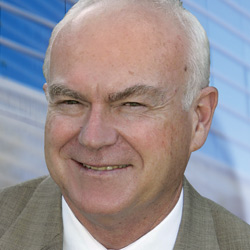Great Debate

Workplace productivity continues to rise, while companies continue to do more with less. The phrase “work/life balance” gets tossed around a lot, but where does the true balance lie? Are organizations better off giving their employees more time to “recharge their batteries?” Two professors from IMD, a top-ranked business school based in Switzerland, face off on this important topic, with two very different viewpoints.
YES: Of Course You Need a Vacation
by Prof. Preston Bottger
What we generally see is that few people are able to achieve a perfect work-life balance. Indeed, it’s difficult to do, especially in demanding jobs that entail high levels of responsibility. If you’re skillful, you might be able to develop a "workable-mix-over-the-many-decades," but for those of you early in your careers, a good short-term balance is rarely possible.
 The truth of the matter is that intense physical, intellectual and emotional demands imposed by high-level work simply do not permit an easy cycle between professional tasks and personal relaxation. In juggling work relationships and relationships outside of work, each can suffer from obligations imposed by the other. A little vacation time—however you can get it—might be just what you need to rejuvenate and reset priorities and commitments.
The truth of the matter is that intense physical, intellectual and emotional demands imposed by high-level work simply do not permit an easy cycle between professional tasks and personal relaxation. In juggling work relationships and relationships outside of work, each can suffer from obligations imposed by the other. A little vacation time—however you can get it—might be just what you need to rejuvenate and reset priorities and commitments.
Observing those who have great responsibility for others' lives and others' money, we see many instances of burnout. Burnout, a buzzword for work-induced fatigue and depression, usually includes reduced attention span, irritability and the increasingly strange choices of priorities. If a vacation could avoid all of this, wouldn’t it be worth taking?
Yet, you may say, we see other professionals in highly responsible positions who show few signs of tiredness, they never get upset (at least not in public), do not lose focus and do not burn out.
So what's the difference between those who burn out and those who don’t?
For starters, people who tend not to burn out have made effective deals professionally. They negotiate terms with their employer so that the work they do, the compensation they receive and the personally thrilling opportunities they get, all add up to a very acceptable, actually nurturing, deal.
They also make a good deal with their “self,” especially, for example, the self that will awaken on their 70th birthday. They take the necessary timeouts, as the days and decades roll by, to keep themselves up-to-date with whom they have become. And they experiment with personally distinctive solutions to the question of how best to protect and enhance their own well-being. This greatly improves the chance that, on that fateful future birthday morning, their honest appraisal of their life will be “This is OK!” or even “This is great.”
Such people have developed their own formula for life success—but it’s a formula that costs time.
What Kind of Time, When?
A generic success formula does exist. The biographies of happy, energetic and useful 70-year-olds—those who made it successfully without a hint of burnout—show that these folks have worked out the essential principles of their own best rhythms of "stretch and recovery," and that they apply these religiously.
So what are your essential principles of self-nurturing?
Only you (and perhaps with the help of the right kind of doctor) can say. Whatever your personal formula, this is critical: you must give your mind a vacation—every day (minimum of ten minutes, morning and evening), every week (minimum 60 minutes of quiet time for reflection), and every year (minimum two weeks of complete disconnect from work stimuli).
A simple vacation to ensure that you have time off from responsibilities, are up to date, and clear in your thoughts is indispensable. Employers beware: a mind that is not deliberately given a rest will take it when least expected. iBi
Preston Bottger is a professor of leadership and general management at IMD, teaching in the Orchestrating Winning Performance program and the Program for Executive Development.
 NO: Three Myths About Vacation and Productivity
NO: Three Myths About Vacation and Productivity
by Prof. Anand Narasimhan
The first myth: Beware of the employer that tells you, “Vacations are good for recharging the batteries.” That’s a nice metaphor, but when was the last time you saw a nine-volt lounging at the pool?
Sure, if you engage in physical labor—assembling widgets, shooting hoops or touch-typing court proceedings—a vacation will help heal joints and stave off repetitive stress injury. But if you are reading this column, you are likely a knowledge worker. If you are paid to do things like opine why yuan revaluation will impact Arcelor-Mittal’s demand forecast or speculate how a new telenovela will affect media buying in Belo Horizonte, then two weeks on the beach will not necessarily make you any smarter than a weekend away from the office. Or at least I haven’t seen any research showing the optimal downtime for intellectual labor. I am not convinced that a long vacation recharges brain cells.
The second myth—often sold by the alluring posters of Club Med—is that a vacation is an oasis of peace and quiet. To bust this myth, you only have to turn to Harvard psychologist Daniel Gilbert’s conclusion about a trip to Disneyland with the kids: while there, we are completely aware that the hotels are overpriced, that the second-long rides have hour-long waits and that the food is truly awful. Yet, in the end, our brain fools us into reflecting on the wonderful time and forgetting about how truly stressful family bonding can be.
It’s not just parents with kids that encounter stress on vacation. In these days of too much information, kid-free couples have other things to worry about. Perhaps the beach resort they booked was not rated No. 1 on TripAdvisor, or the plane tickets could have cost less on Priceline, or they might not look supremely shapely in their new swimsuits. They are anxious about not getting the maximum juice out of the vacation. And for singles, it’s even worse. You are on permanent heightened alert, hoping that this will be the vacation that finally changes your Facebook status. The inconvenient truth is that the most relaxing part of the vacation is the day we return to work.
Finally, the third myth is that employers care a lot about productivity. They do, but not as much as commitment. Scholars that study assembly lines as well as professional service work have concluded that the corporation cares more about capturing your soul than it does your labor. Note Barcelona’s enthusiasm to sign World Cup star Cesc Fabergas. Or the public outrage from owner Dan Gilbert at LeBron James’ “great betrayal” in leaving the Cavaliers. Both teams are more concerned with demonstrating that they have the power to pull and retain talent than they are with the number of goals or hoops their stars might get.
In creative and intellectual industries, pulling power for tomorrow contributes more to share price than today’s productivity. So what employers really care about is knowing that you’ll stay committed, regardless of whether you’re at the office or on the beach. The insightful sociologist Mark Suchman once told me of a billboard that bothered him. It showed a woman lounging on a beach chair, typing away on her laptop. The caption read, “In the office of the future, there will be no office.” Suchman said, “While my eyes read the caption accurately, my brain offered a mischievous—but truer—reading: In the vacation of the future, there is no vacation.” iBi
Anand Narasimhan is a professor of organizational behavior at IMD,
teaching in the Orchestrating Winning Performance program and the International Seminar for Top Executives.

